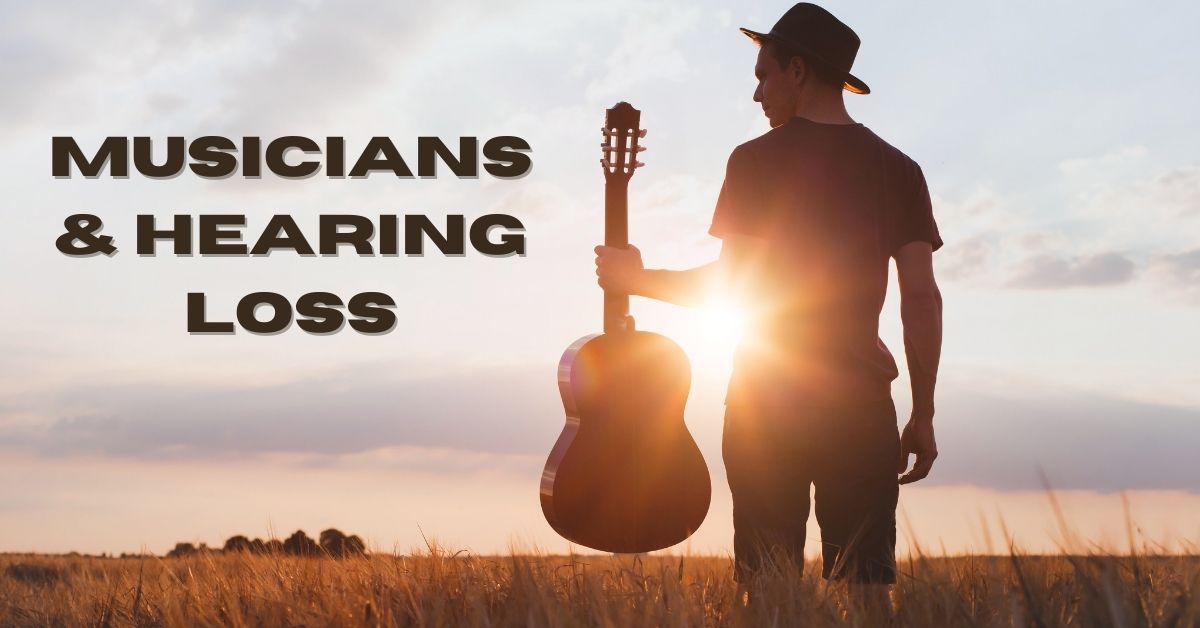- Common Hearing Aid Problems & How to Fix Them - June 14, 2021
- Why People Avoid Treating Hearing Loss — and Why You Should Schedule a Hearing Test! - May 21, 2021
- Common Hearing Aid Problems & How to Fix Them - May 14, 2021
Exposure to loud noise is one of the most common causes of hearing loss. Musicians experience a higher risk of impaired hearing compared to any other profession. According to the Hearing Health Foundation, musicians are nearly 4 times more likely to develop hearing loss than the general public. Additionally, musicians are 57% more likely to develop tinnitus, a buzzing or ringing like noise in the ears (a major symptom of hearing loss). There are effective ways musicians can reduce their risk and be proactive about their hearing health!
Noise Induced Hearing Loss
One time and/or consistent exposure to loud noise can cause noise induced hearing loss by damaging parts of the auditory system. This system, responsible for how we hear, consists of:
- Outer ear: the most visible part of the ear absorbs sound from the environment which travels down the ear canal and lands on the eardrum.
- Middle ear: the vibrations of the eardrum and the ossicles – three connected bones – help push the soundwaves further into the inner ear.
Inner ear: the cochlea, filled with fluid and thousands of hair cells, is activated which helps translate soundwaves into electrical signals. These signals travel through auditory pathways to the brain where they are assigned meaning to; enabling us to understand what we hear.
The louder the sound, the greater the vibrations and movement in the middle and inner ear. This can be potentially harmful because the hair cells in the inner ear are highly sensitive and need time to rest and recover from constantly absorbing sound. Extreme or consistent movement can cause these hair cells to lose sensitivity or die. This damage is permanent because hair cells in the inner ear, unlike other types of cells, do not regenerate. Additionally, there are no medical treatments that can replenish these hair cells, resulting in permanent hearing loss.
How Loud is Too Loud?
It is critical to be mindful about the noise levels in your environment. Sound is measured in units referred to as decibels (dB) and noise above 85dB can be harmful for hearing. 85dB is the equivalent of busy city traffic and lawnmower. Sound above 85dB can accelerate the damage to hearing. According to the American Speech, Language, Hearing Association; the safe listening time is cut in half for every 3dB rise in noise levels over 85dB:
- 85dB: maximum of 8 hours
- 88dB: 4 hours
- 91dB: 2 hours
Musicians are regularly exposed to noise above 85dB for prolonged periods of time. The average concert is 115dB (close to an ambulance). Additionally, sound systems in large entertainment venues can reach 140dB which is not safe for any period of time.
Tips for Protecting Hearing Health
It is critical for musicians to be proactive about hearing health. There are several ways you can reduce your risk of developing hearing loss. A few useful tips include:
- Wear Hearing Protection: there are several types of ear protection that work to reduce the amount of sound you absorb. This included earplugs, earmuffs, and headphones. These types of protective wear can reduce noise by 15 to 30 decibels.
- Use In-Ear Monitors: these devices are earbuds and commonly used by musicians and audio engineers to hear audio directly in the ears. This isolates the sound by reducing background noise.
- Know the Volume: always be aware of the levels of sound you are exposed to and the duration. You can download an app to measure the decibels in your environment. Reduce your exposure by avoiding noisy environments, reducing the length of time you are around loud sound, and taking breaks.
- Take Breaks: your ears need time to rest and recover from always absorbing and processing sound. A useful way to do this is to take breaks throughout the day where you are in a quiet setting. Turn off the television, music, loud appliances etc. when you can.
Get Hearing Tested!
Hearing tests are a painless and noninvasive way to measure your hearing ability in both ears. This identifies any impairment and the degree of hearing loss you may be experiencing. Hearing tests should be included when you conduct your annual health screenings so that you can be mindful of your hearing needs.

